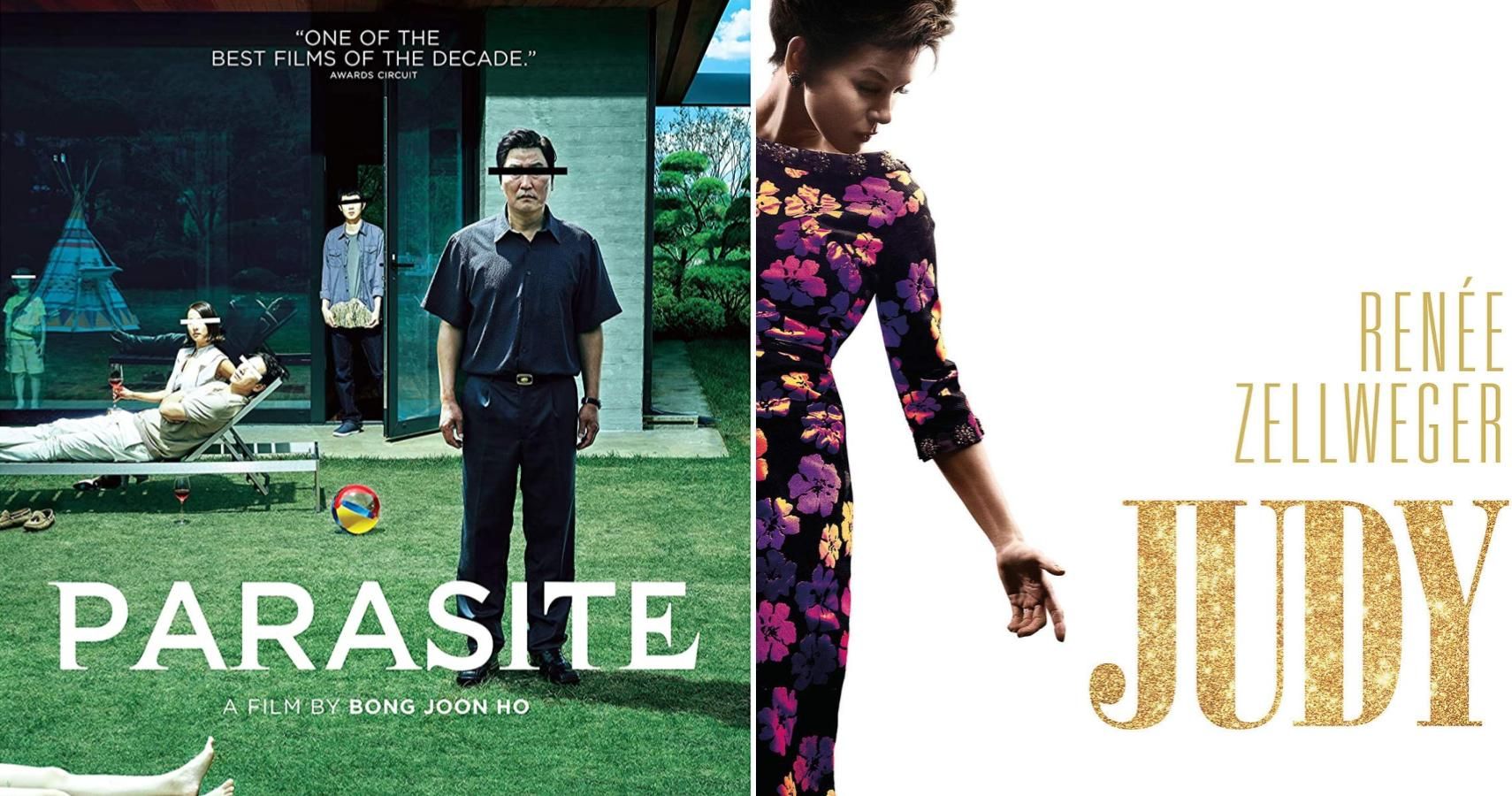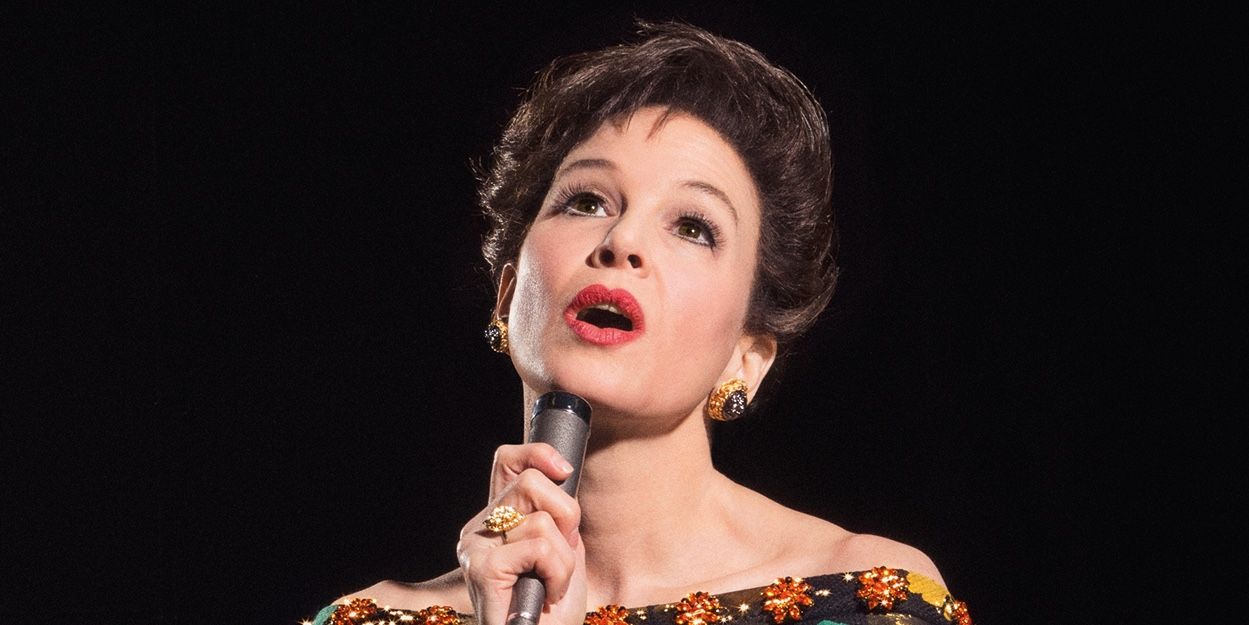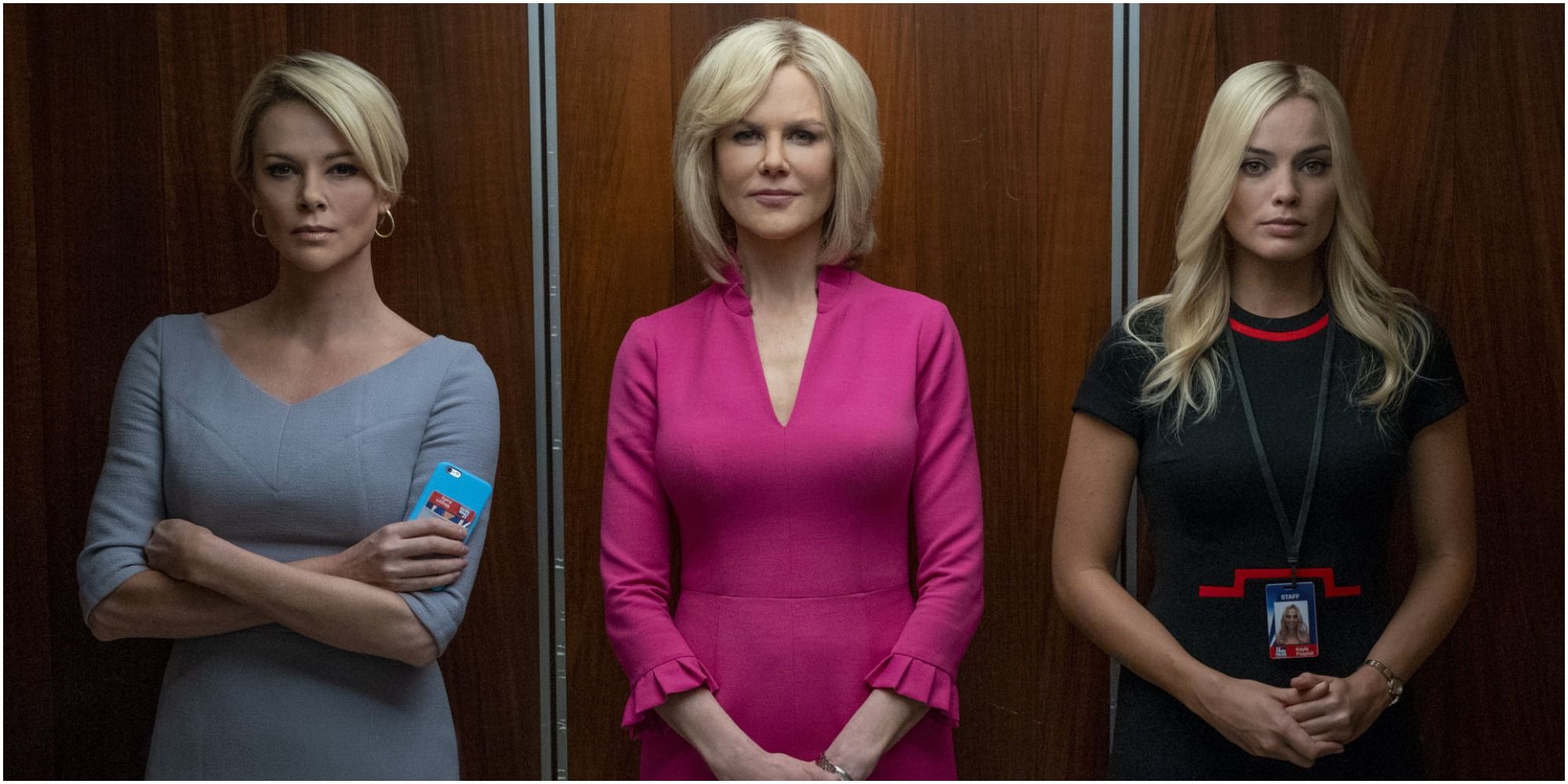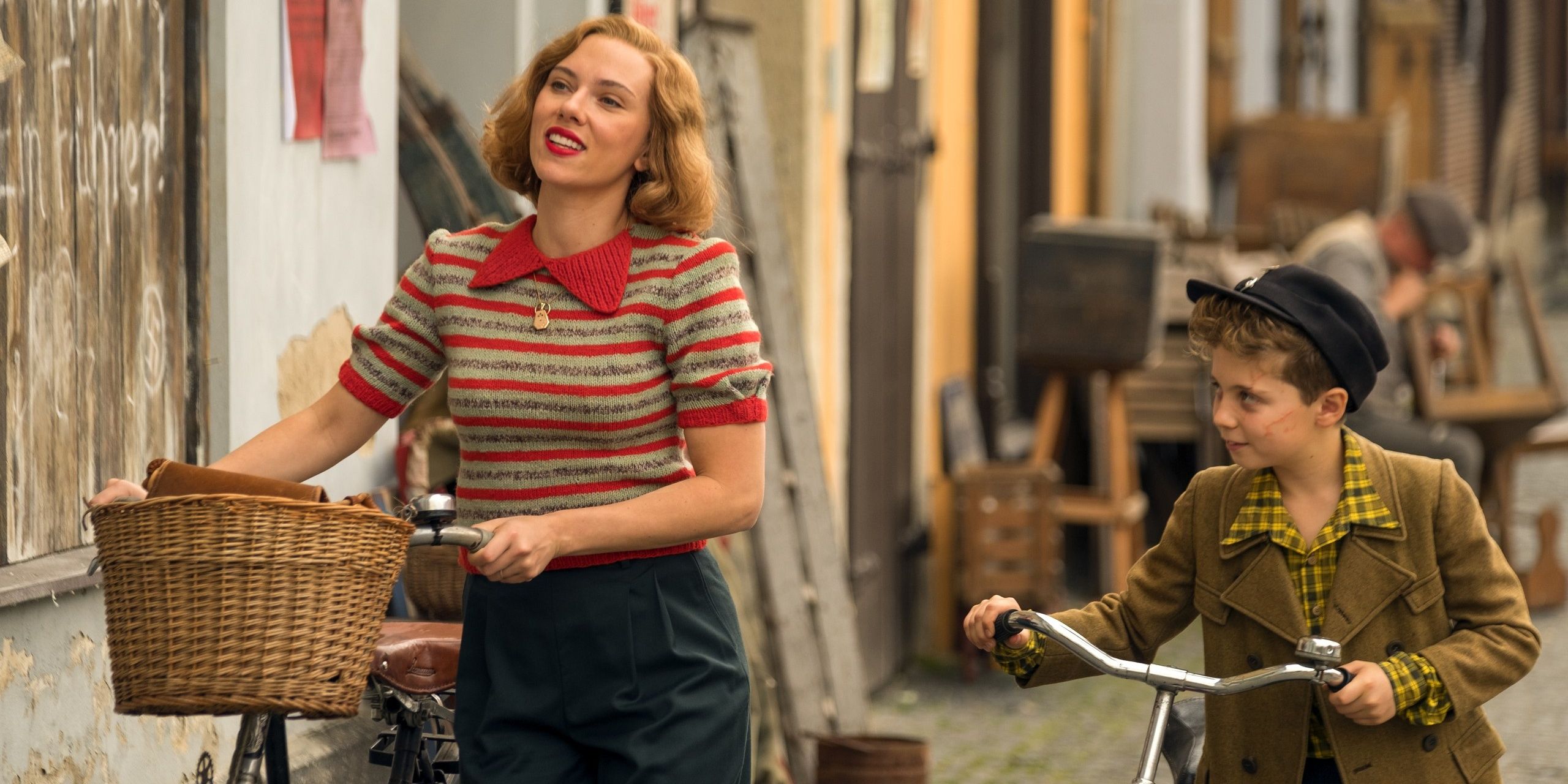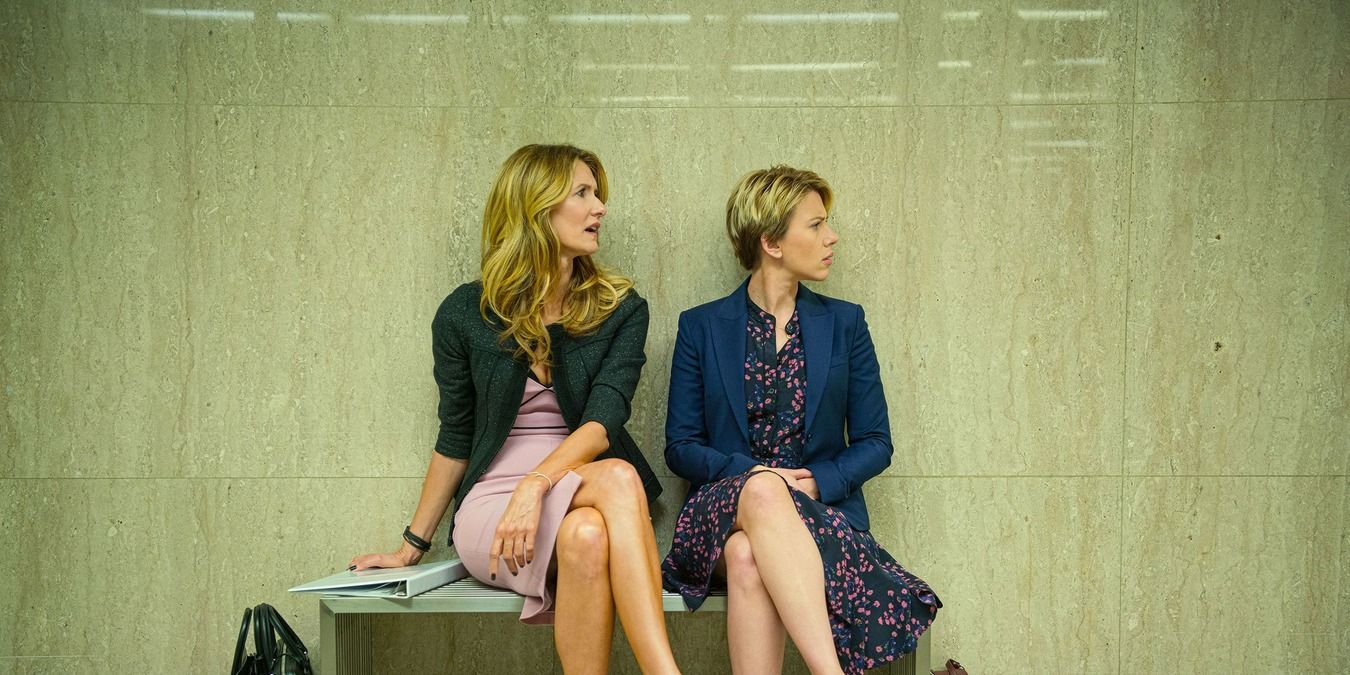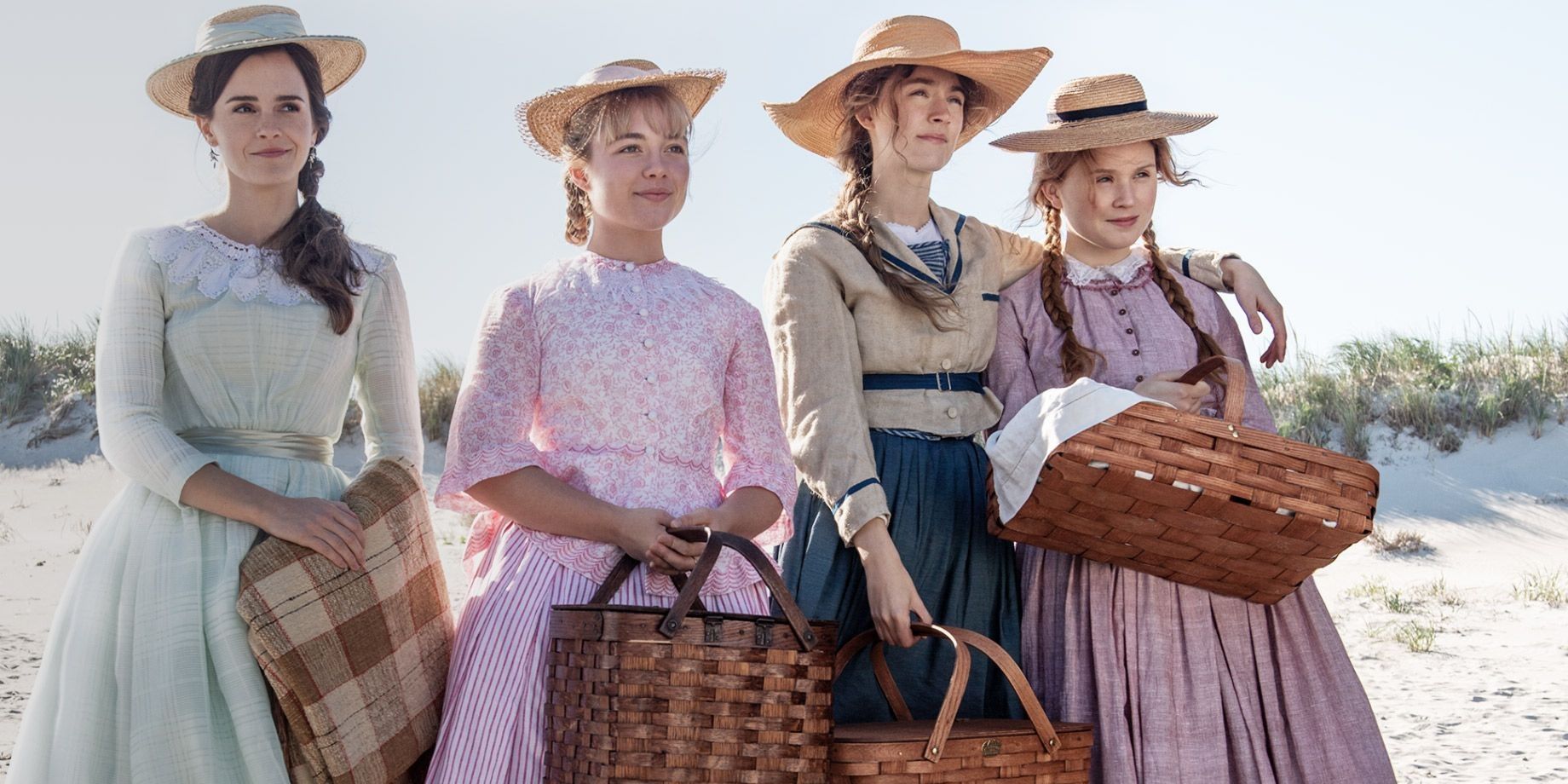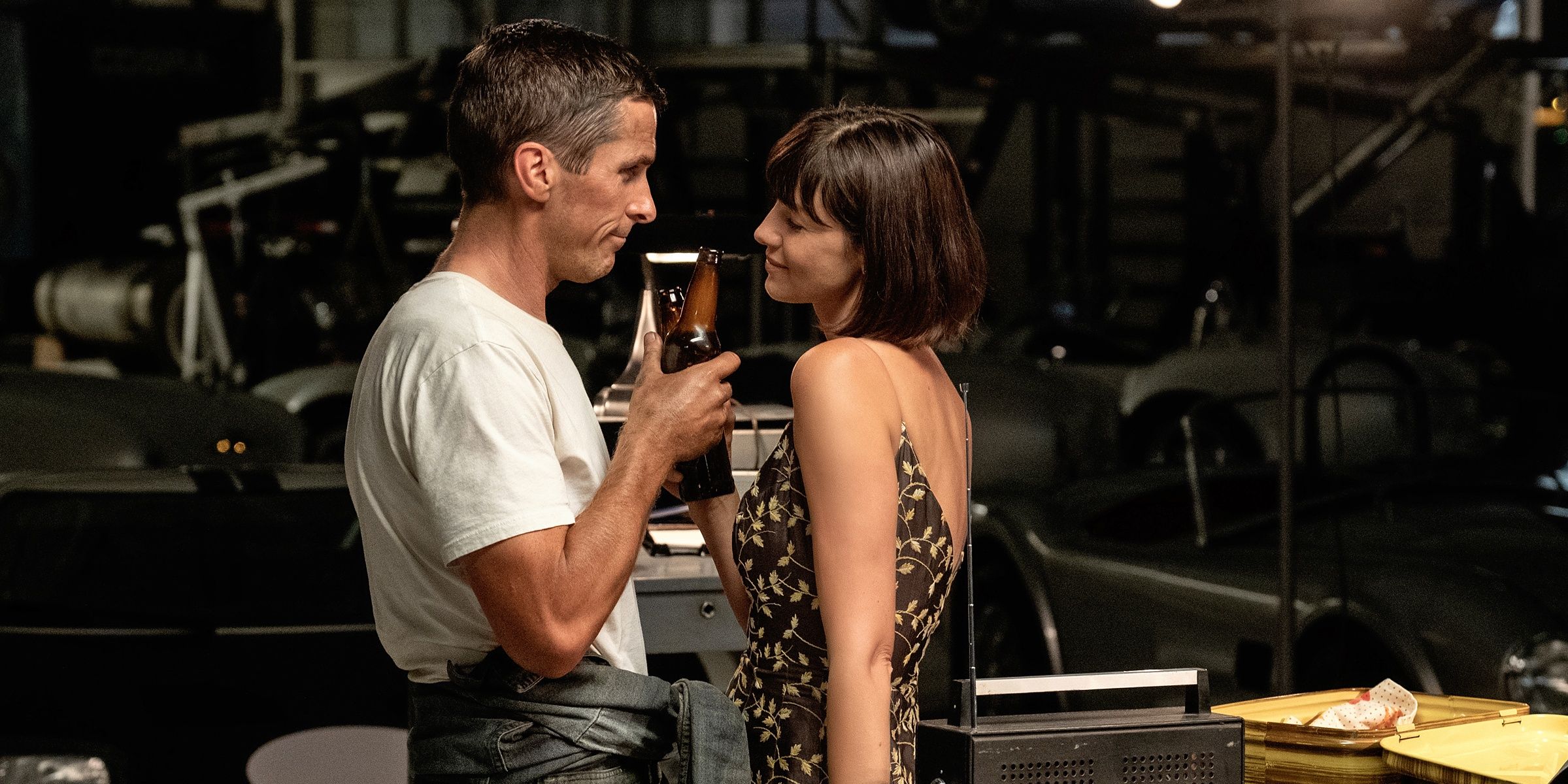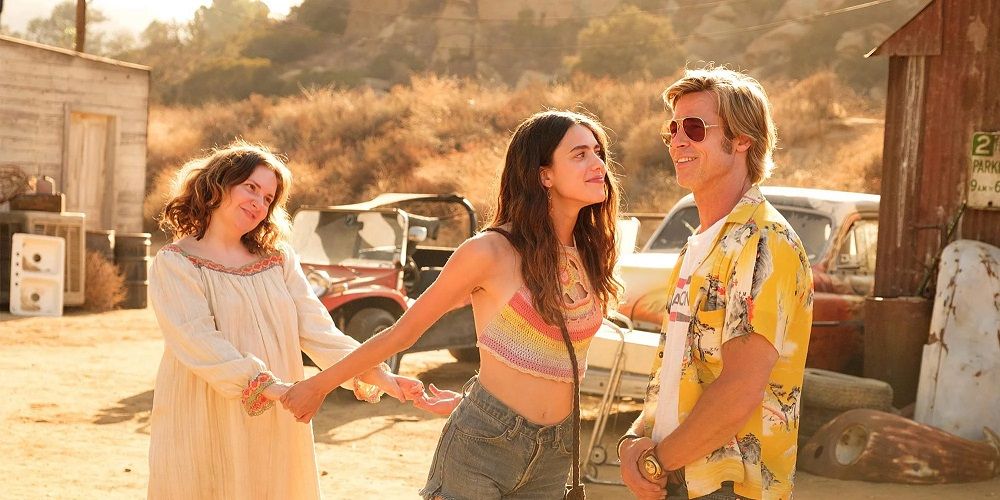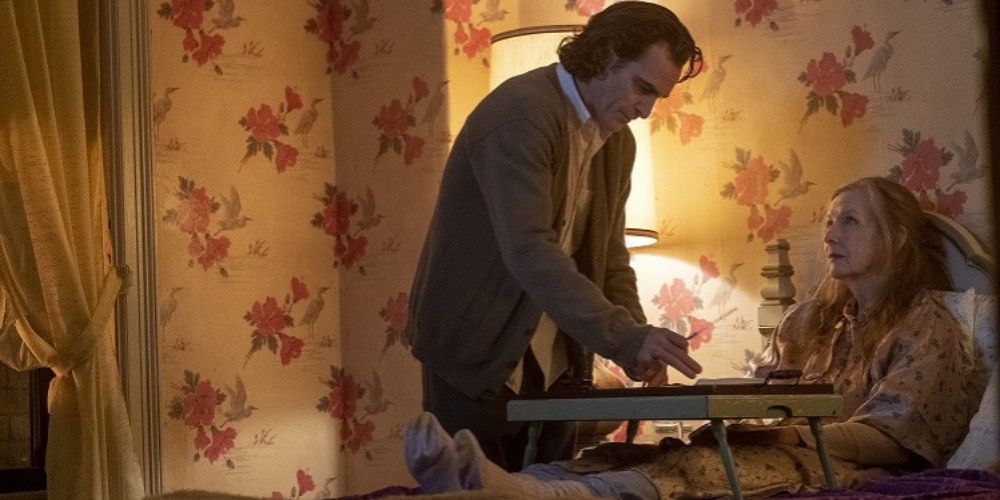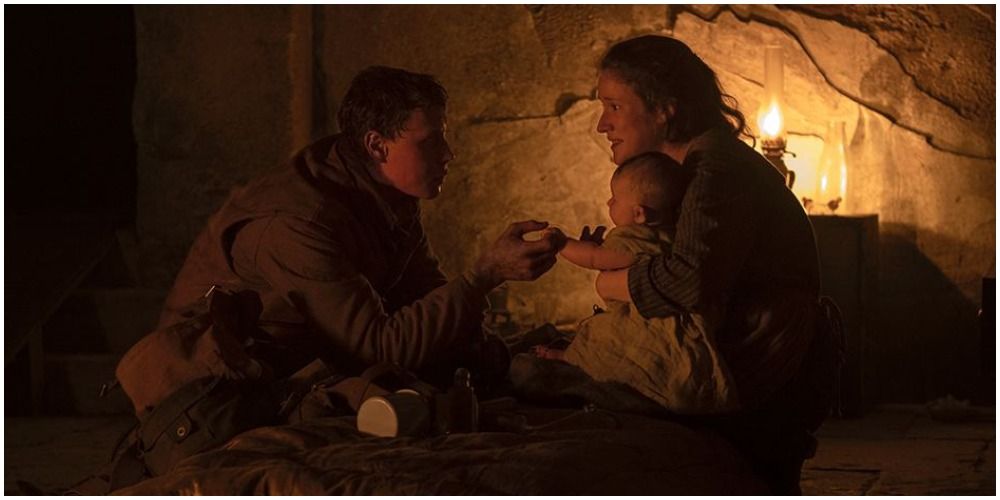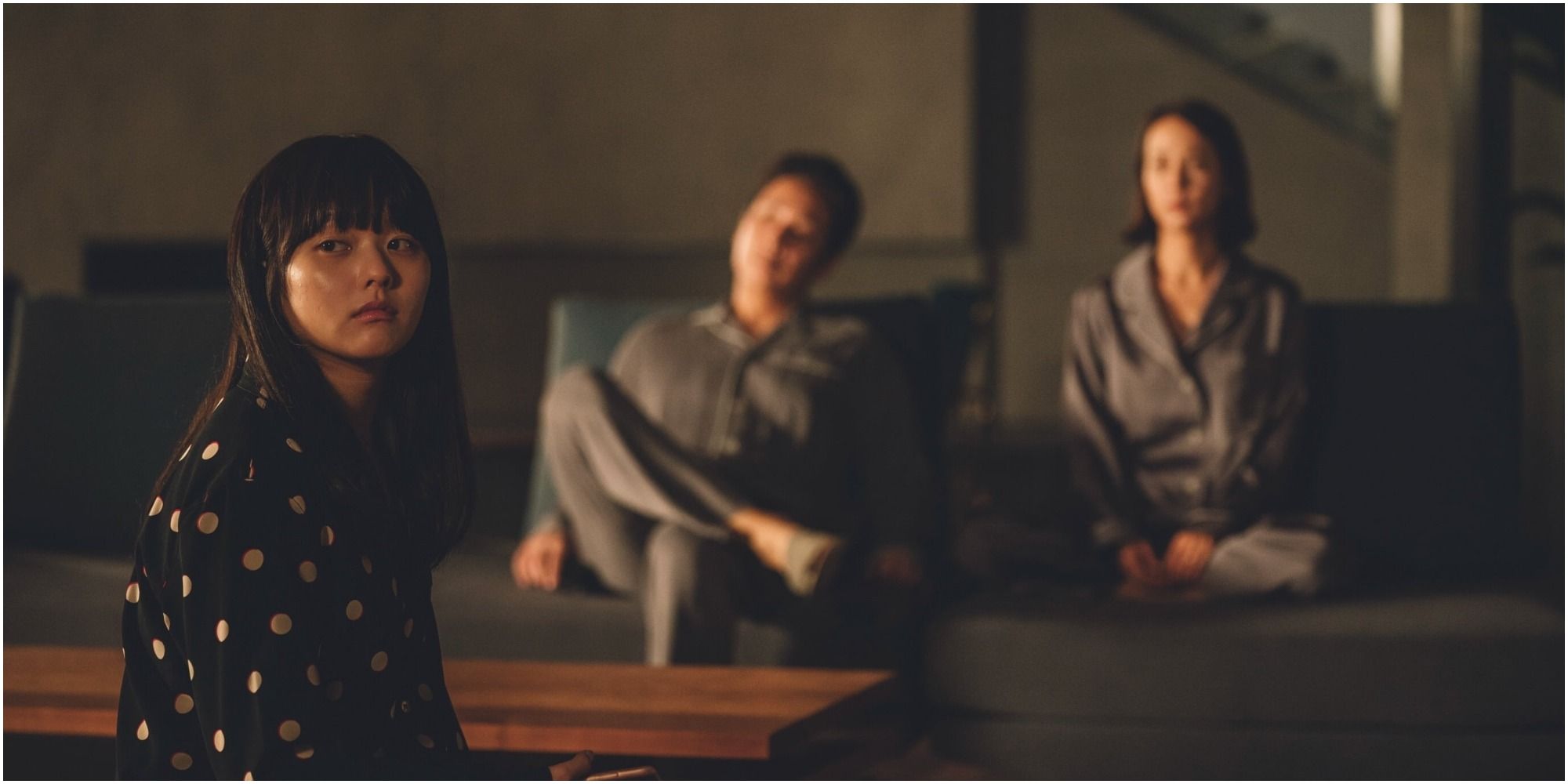2019 was a great year for film, making the 2020 Oscars a memorable one. The Academy honored everything from contemporary thrillers to dramatic true stories to new takes on old classics. It was even considered a good year for women in film, with almost half of the night's most successful pictures featuring a woman in a leading role. But should that be the only standard for representing 51% of the population?
The Bechdel test, created by Alison Bechdel in 1985, is one method of measuring female representation in film. In order to pass the test, a film must feature a) at least two named women, b) who talk to each other, c) about something other than a man. Here are the biggest 2020 Oscar winners that pass the test (and the ones that don't).
Judy: Yes
Judy adapts to film the biographical play End of the Rainbow, which follows Judy Garland, portrayed by Renée Zellweger in the film, during some of her final stage performances in London. The film was nominated for Best Makeup and Hairstyling, and Zellweger took home the Best Actress award for her performance.
Judy speaks with her daughters Lorna Luft and Liza Minnelli near the beginning of the film, but her more substantial interactions come with her production assistant, Rosalyn Wilder (Jessie Buckley). Although Rosalyn's character was not in the original play, she was added to the film adaptation. The real Rosalyn Wilder consulted on the film's script. Although viewers don't learn much about her in the film, Judy depends on and confides in her during their time together.
Bombshell: Yes
Bombshell tells the story of the women at Fox News who came forward about the harassment they endured at the hands of the network's CEO Roger Ailes. The film centers on Megyn Kelly (Charlize Theron), Gretchen Carlson (Nicole Kidman), and Kayla Pospisil (Margot Robbie). Theron was nominated for Best Actress and Robbie for Best Supporting Actress, while the film won the Best Makeup and Hairstyling award.
Despite its female-fronted narrative, the film dedicates a surprisingly small amount of time toward their interactions with each other other than those concerning Ailes. The only scene in which these three central characters are featured together lasts about 30 seconds and contains only one line: "Hot in here." The film passes with slightly more substantial conversations the women have with other female characters, most significantly Kayla's conversation with Jess (Kate McKinnon) while the two are in bed.
Jojo Rabbit: Yes
Taika Waititi won Best Adapted Screenplay for his Nazi Germany-based political satire, Jojo Rabbit, which also garnered nominations for Costume Design, Production Design, Editing, and Best Picture. Scarlett Johansson also picked up a Supporting Actress nomination.
The film centers on Jojo, a ten-year-old boy who idolizes Adolf Hitler and discovers that his mother Rosie (Johansson) is sheltering a Jewish girl named Elsa in their home. Rosie and Elsa only have a few minutes of conversation together in total, most of which focuses on Jojo, but they also discuss the war, how Elsa staying alive is helping the Allies win, and what it means to be a woman.
Marriage Story: Yes
Described as a love story told through the lens of a divorce, Marriage Story examines the aftermath of Nicole and Charlie's decision to end their marriage. Laura Dern won Supporting Actress for her role as Nora Fanshaw, Nicole's attorney, while Scarlett Johansson and Adam Driver both picked up leading role nominations. The film was also nominated for Best Picture, and writer/director Noah Baumbach's original screenplay was nominated as well.
Though most conversations in the film concern the Barbers' divorce, Nicole has an exchange with Nora about her acting career. She also speaks with her mother Sandra and her sister Cassie about their family and her childhood, which are substantial enough to provide an image of each individual woman's personality.
Little Women: Yes
Another Best Picture nominee, Greta Gerwig's version of the classic Louisa May Alcott novel earned the writer/director an Adapted Screenplay nomination. Saoirse Ronan and Florence Pugh were each nominated for their performances while the film's 19th century attire took home the Costume Design award.
Little Women tells the story of the four March sisters living in Civil War-era Massachusetts and features an almost all-female ensemble cast. The film follows each of the girls as they grow into women, with their bond as sisters remaining at the heart of it all. Naturally, the film passes the Bechdel test within the first few minutes.
Ford v Ferrari: No
Ford v Ferrari follows the (mostly) true story of Carroll Shelby and Ken Miles, an auto designer and driver team determined to win the 1966 Le Mans with the Ford GT40. The film stars Matt Damon and Christian Bale in the lead roles. It earned four Oscar nominations, including Best Picture, and won both the Film Editing and Sound Editing categories.
Despite its critical acclaim, the film doesn't meet the most basic standard required to pass the Bechdel test: featuring two named women. Ken Miles' wife Mollie, portrayed by Caitriona Balfe, is the only female character in the film who is given a name.
Once Upon A Time...In Hollywood: No
Once Upon a Time...In Hollywood received a total of ten nominations, including Best Picture, Directing and Original Screenplay nods for Quentin Tarantino, and Best Actor for Leonardo DiCaprio. Brad Pitt won for his supporting role while the film took home the award for Production Design. Taking place in 1969, the film follows a western film star (DiCaprio) and his friend and stunt double (Pitt) while also depicting the infamous Manson family.
To the film's credit, it does feature a number of named women, some of whom do talk to each other. Most of these interactions take place among the Manson women on Spahn Ranch, but they all focus on either Cliff, George, or Tex. Sharon Tate (Margot Robbie) speaks briefly with Joanna, but their conversation is barely discernible.
Joker: No
The Todd Phillips-directed Joker was nominated for eleven categories, including Directing, Adapted Screenplay, and Best Picture. It won the Oscar for Original Score while Joaquin Phoenix won Best Actor for his astonishing performance as Arthur Fleck.
However, Joker also fails the Bechdel test. While a few women appear in the film, only Dr. Sally, Penny Fleck, and Sophie Dumond's daughter GiGi are named within the dialogue. Sophie and GiGi speak briefly in the elevator, but Sophie herself isn't named until the credits. None of the other women interact with each other in any way.
1917: No
Sweeping the Cinematography, Sound Mixing, and Visual Effects categories, Sam Mendes' World War I film earned a whopping ten Oscar nominations, including Directing and Original Screenplay nods.
While 1917 is hailed as a visual marvel and a technical achievement, the film fails the Bechdel test on all three counts as it features only one named woman, a Frenchwoman named Lauri. Fans of the movie have defended its lack of female representation, pointing out that it takes place in a war zone and follows British soldiers, but that position egregiously overlooks, as many war films do, the invaluable role of women in the war effort.
Parasite: Yes
Writer and director Bong Joon Ho was surprised as anyone when Parasite became the first foreign language film to win the Oscar for Best Picture, saying in his acceptance speech that he had only thought it would maybe win the International Film category. In fact, it won both of those categories, plus Directing and Original Screenplay.
The film features five named women, each of whom have at least one conversation with another that does not involve a man; however, most of these interactions do concern child-rearing and housework, areas which are considered to fall under traditional women's roles. Ki-Jung speaks with Yon-Kyo on the phone, using a disguised voice, about hiring a housekeeper. Yon-Kyo talks to Chung-Sook about housework responsibilities. Yon-Kyo and her daughter Da-Hae have an argument about the japaguri. It is worth noting that these conversations would not pass stricter versions of the Bechdel test, which sometimes add the requirement that the two women talk about something other than stereotypically female subjects such as these.

